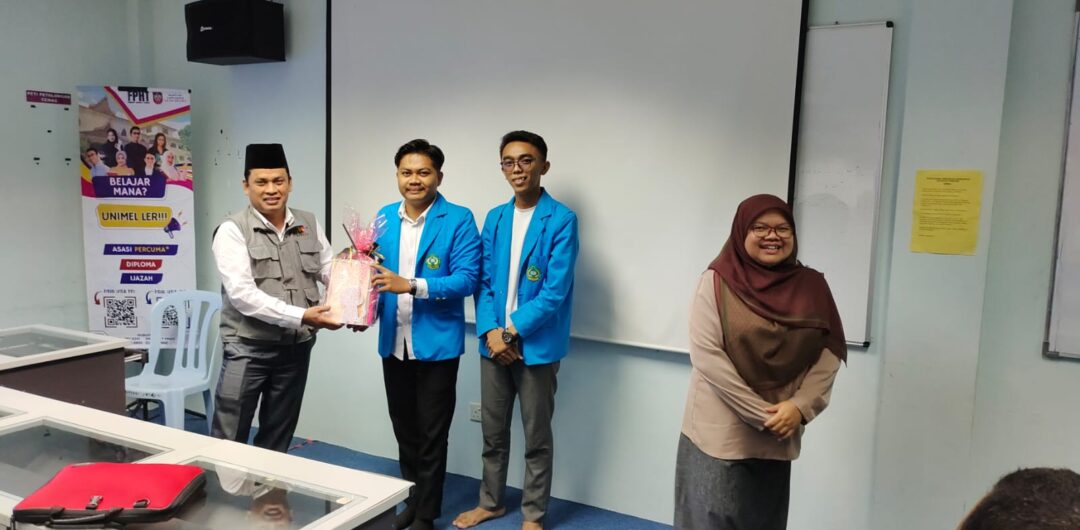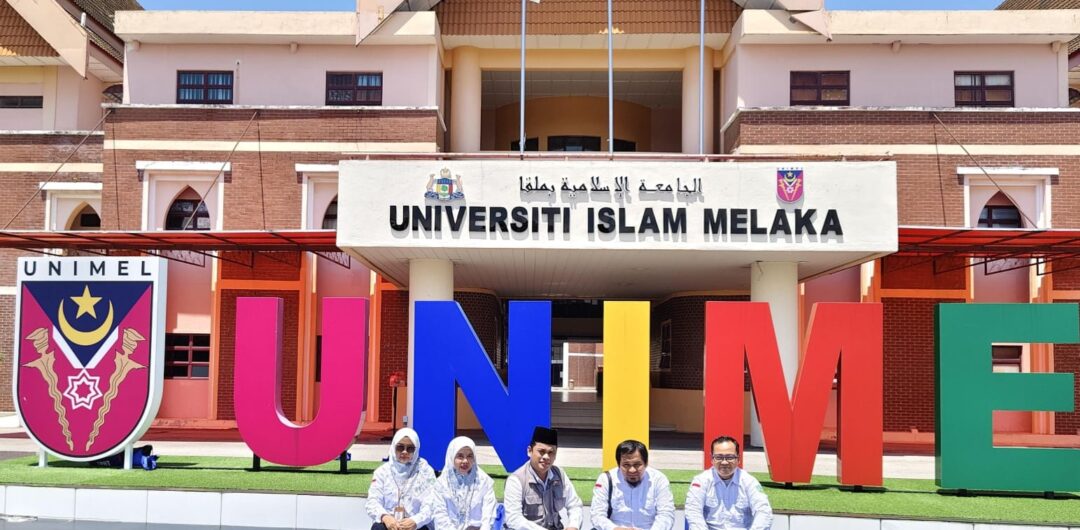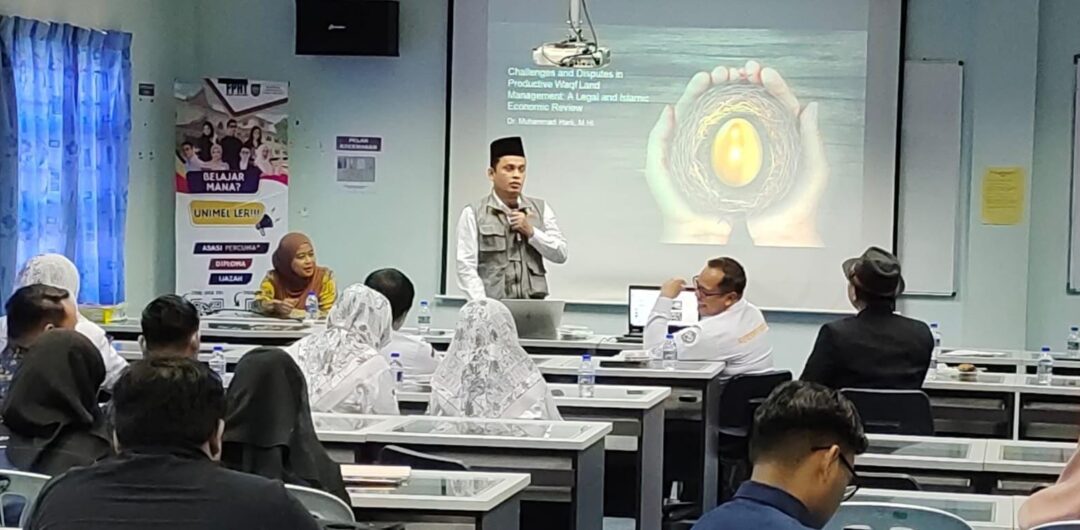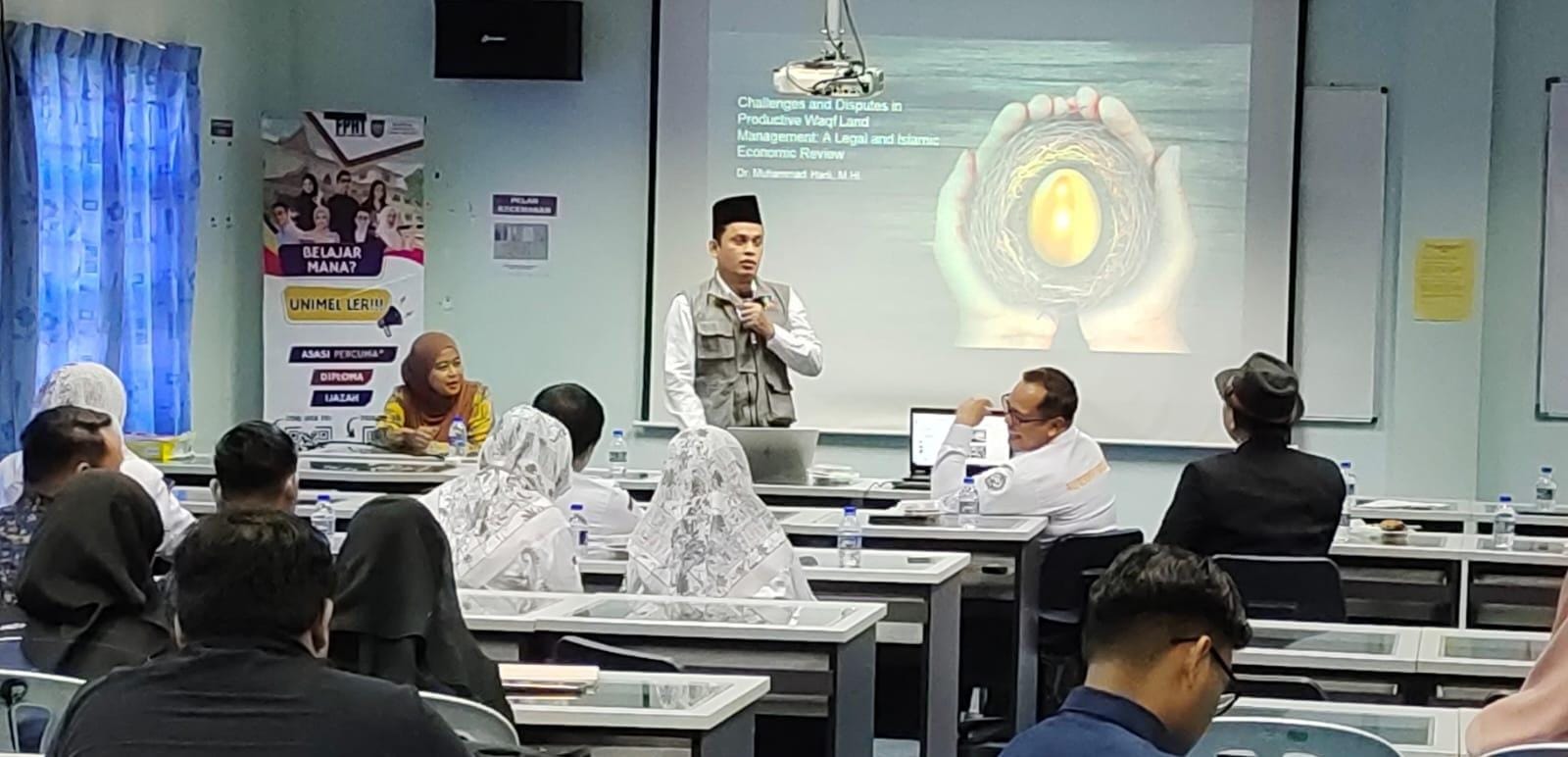Melaka, 10 October 2024 – Universiti Islam Melaka’s Faculty of Business, Hospitality, and Technology hosted a thought-provoking seminar led by Dr. KH Muhammad Hadi M.Hi, addressing the critical issue of managing productive waqf lands. His presentation, titled “Challenges and Disputes in Productive Waqf Land Management: A Legal and Islamic Economic Review”, provided key insights into the complexities surrounding the governance of waqf properties, commonly referred to as “wakafnomic.”
Waqf, or charitable endowments in Islamic law, has long been a cornerstone of economic and social welfare. However, the modern-day management of productive waqf lands faces significant hurdles. Dr. KH Muhammad Hadi M.Hi identified several challenges, including legal ambiguities in waqf regulations, insufficient management expertise, and a lack of community engagement. These factors have led to disputes and inefficiencies in realizing the full economic potential of waqf assets.
Legal Challenges in Waqf Management
One of the primary obstacles highlighted in the seminar is the inconsistency in waqf regulations, particularly across different jurisdictions. While some countries have modernized their waqf laws, others remain rooted in outdated legal frameworks that do not accommodate contemporary economic realities. This disparity often leads to confusion and mismanagement of waqf properties, limiting their productivity and, consequently, their contribution to societal development.
The Need for Expertise and Community Engagement
Dr. KH Muhammad Hadi M.Hi also emphasized the need for improved management capacity. Many waqf boards and managers lack the necessary skills to handle these assets effectively. Furthermore, limited community participation has contributed to a disconnect between waqf administrators and the beneficiaries they are meant to serve.
To bridge this gap, the seminar called for capacity-building initiatives that focus on equipping waqf managers with modern skills in finance, law, and property management. Additionally, fostering stronger community involvement can help ensure that waqf assets are managed transparently and in line with the needs of society.
Leveraging Technology for Transparency and Efficiency
In his closing remarks, Dr. KH Muhammad Hadi M.Hi proposed that integrating modern technology could be a game-changer in addressing these challenges. Digital platforms, for example, can provide real-time tracking of waqf assets, ensuring transparency in their management and distribution. Moreover, blockchain technology holds promise for resolving disputes by creating immutable records of waqf transactions, thereby reducing opportunities for mismanagement and corruption.
A Call for Collaborative Reform
The seminar concluded with a call for a collaborative effort between governments, religious leaders, and the community to enhance the productivity of waqf lands. By addressing legal ambiguities, fostering expertise, and embracing technology, waqf assets can be transformed into significant contributors to economic growth and social welfare.
Waqf has the potential to be a driving force for sustainable development, but it requires an organized, transparent, and technologically advanced approach to fulfill its role in today’s economy. As Dr. KH Muhammad Hadi M.Hi aptly put it, “Waqf is not just a relic of the past; it is a powerful tool for the future, capable of empowering communities and fostering economic resilience.”
For more information about future seminars at the Faculty of Business, Hospitality, and Technology, Universiti Islam Melaka, and updates on waqf management, stay tuned to our official website.
Keywords: Waqf Management, Productive Waqf, Wakafnomic, Islamic Economy, Waqf Disputes, Legal Reforms, Economic Development, Dr. KH Muhammad Hadi M.Hi, Universiti Islam Melaka, Blockchain in Waqf



